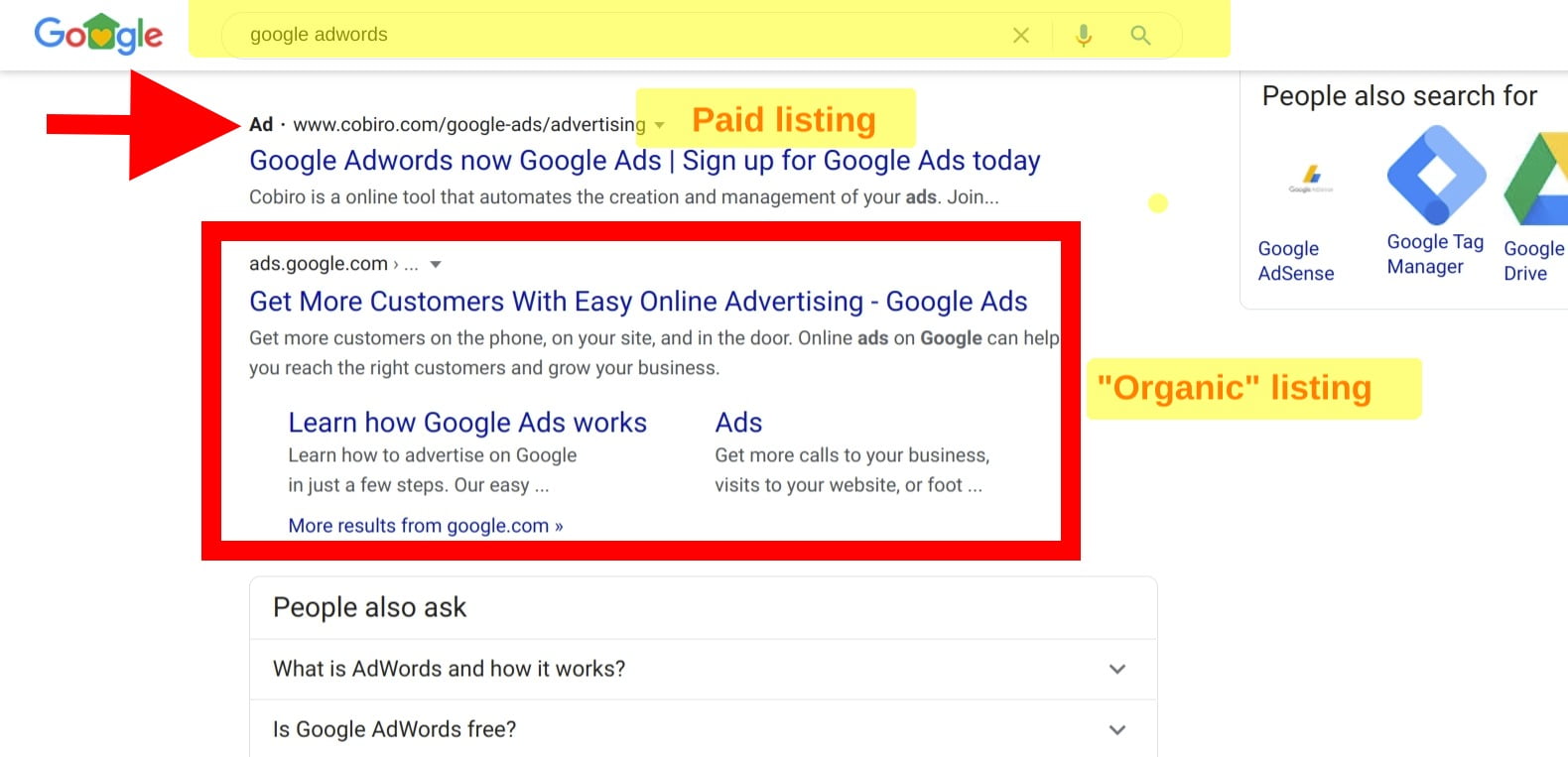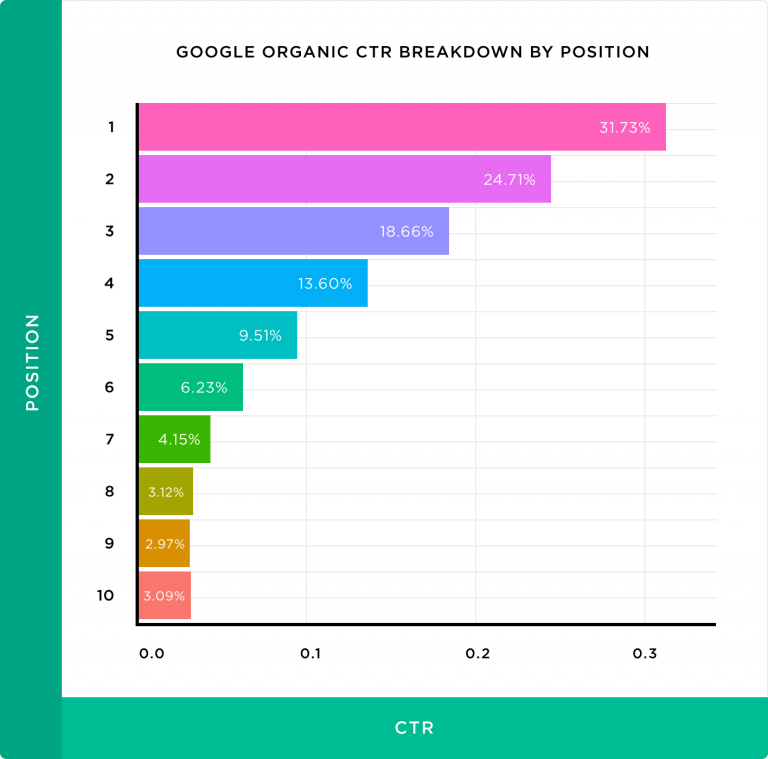F
irst thing’s first: If you’re looking to get found by the exact types of high-value clients you want, did you know that search engines send 300% more traffic than the beloved social media?
Even more astounding, GOOGLE ALONE sends websites exponentially more traffic than Facebook, Twitter, and all social networks COMBINED.
Take a look:

That’s not to say that social media marketing isn’t valuable. (It can actually help increase your Google rankings.) It’s just not necessary for you to regularly get the exact types of clients you want.
Sure, you might get a funny look or two when you tell people your company doesn’t actively use social media, when they ask. But who cares, as long as you’re consistently meeting your exact, perfect client each month?
As you can see, Google search leaves social media in the dust when it comes to generating leads for your business. But should you get YOUR website a top ranking in Google?
First, What are “Organic” Google rankings?
The term “organic” refers to the sites you see in search results that rank naturally for a keyword, not the ones that say “Ad.”

Now, here are answers to some commonly asked questions surrounding Google marketing for Black-owned businesses in particular.
Should I use “African American” terminology in my Google listings?
This is a highly personal choice, so we won’t spend much time on branding, social, and other reasons for why you may or may not want to.
Suffice it to say that targeting high-value clients who are specifically seeking a Black or African American advisor can be extremely rewarding.
For instance, if you’re an AfAm financial advisor offering services that are specifically of interest to a high net worth African American family, drawing these clients in to your book is an incredibly easy win.
And remember, choosing to target Black households never means that that’s the ONLY household you must target, nor does it mean that others outside this group won’t want to work with you.
There’s a certain way to handle your marketing so that you can target very distinct client types without excluding all others.
That’s outside the scope of this article, but this is definitely a conversation we should have as soon as we start working together.
How long does it take a website to appear in Google search results?
If this isn’t a trick question, it certainly has a trick answer.
Any marketer worth her or his salt should know how to get Google to find your website immediately after it’s created.
But because 91.5% of us don’t go any further than the first page of results when we type in a query, if our websites aren’t on that first page, we’re unlikely to ever be seen by potential clients.
But let’s back up a minute.
Just because we can get Google to “find a site and list it immediately” doesn’t mean we’re getting any sort of top or first-page ranking.
Just the opposite, really.
Getting to the top of Google search results takes time, with how much time being directly dependent on the audience we’re targeting.
That’s why we advocate for targeting clients in your local area first whenever possible. This is what we do for clients, because it allows you to see good results potentially within a few weeks, instead of in 6 months to a year or more (when targeting a wider area).
And your SEO pro MUST use your Ideal Client Profile as a basis to know which keywords to best choose first. More on that in a minute.
But honestly, even a “first-page” ranking won’t likely be enough to be worth your SEO investment.
Because…
Even when ranked on the first page … at least 50% of searchers still won’t visit your website unless it’s in the Top 3.
This unfortunately rainbow-colored(?) chart, taken from a study conducted by Backlinko.com, shows how the clickthrough rate (“CTR”) drops off considerably as you move from Listing #1 to #10.
So if your website is on Page 1 for a chosen keyword, it’s getting about 24 and 31% of the visits from searchers … as long as you occupy the #1 or #2 spot.
But if you’re at the bottom of the page, you’re only getting 3%.
So should we always target the #1 or #2 spot?
With this data, you’d think that it makes sense to always shoot for a #1 to #2 ranking for your keywords, #3 at bare minimum.
In theory, this sounds a-m-a-z-i-n-g.
Problem is, we don’t own Google. And with literally hundreds of millions of websites competing for most keyword phrases… remember that this is only happening for THREE of them.
Of course you see the problem.
Getting a #1 to #3 Google ranking can take anywhere from weeks, to a few months, to more than a year to achieve, depending on a wide range of factors. (Actually, more than 200!)
So how do we combat this and get results quickly?
In a couple of different ways:
#1: By being willing to shoot for lower rankings for super-competitive keywords, OR by starting with moderately-competitive keywords to establish an initial ranking foothold.
#2: By using paid advertising to get more immediate results.
#3: By targeting local searchers and building awareness of your firm locally, to get quick results.
But whichever strategy you choose, it is IMPERATIVE to ALWAYS base your marketing around what your ideal client actually wants.
When my Google rankings are increasing, will I see new visitors and leads right away?
Many marketing companies won’t tell you this, but keyword choice and industry research are critical planning steps to ensure your marketing campaign is a success.
An inexperienced, “digital marketing” generalist might help you achieve #1 Google rankings, but you could see no new leads or clients from those rankings at all.
Here are five reasons why you might sometimes see your rankings increase, but not yet see any leads:
The Reveal:
Organic Google rankings are important to a well-rounded, self-sustaining digital marketing plan.
While Google shouldn’t be the only marketing strategy you’re using, we cannot ignore the importance of having an effective ranking plan in place.
But patience and a solid, intentional strategy (focused around your Ideal Client) are key.
Then as long as your marketing is targeted and relevant to your ideal client, your keywords are relevant, your rankings steadily improve, and your website is set up to easily converts leads to clients, your Google marketing plan is set up for success.



This is top-notch. I have to voice my passion for your kindness giving support to those people that should have guidance on this important matter.
Thanks Okuse.